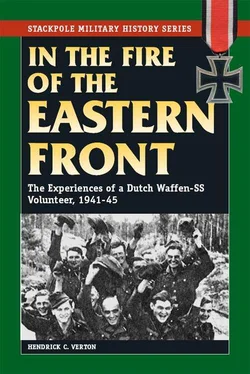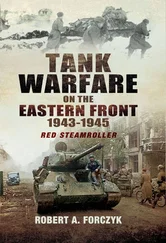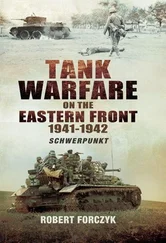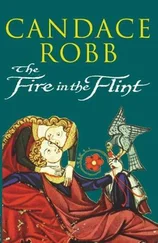I was more resolute in my dealings with the handlers, as a male, and a foreigner as well. I let them know that business was business and that their stated price was not for me. I bartered in Polish, for as long as it took, until the price was what I had intended, i.e. reasonable for the wares offered. I soon became a ‘king’ of this market. When I appeared, I usually offered articles from the Laska family from before the war. Such items had become costly, but were of good quality and could no longer be obtained. I had leather shoes, wool coats, suits, bedding materials, inlets, women’s brassieres. All were sought after goods and brought the highest of prices.
When business for the day closed, I allowed myself a visit to the Piwo and Wino stand, where I downed a vodka and ate a sausage in a roll. I was usually not there long before being joined by one of the many prostitutes. It was the custom when meeting members of the opposite sex on the street, to greet them with a kiss of their hand. This included them, even when they had black fingernails!
After successful sales, we were able to add pancakes and potato fritters to our daily nourishment, but both had to be fried without fat. Sometimes we even had smoked meats. At Christmas 1945 for instance, we managed to have typical Silesian dumplings, with roast pork and pickled cabbage.
Someone had the idea of visiting the now wild and overgrown nursery gardens in Gandau, to harvest some apples. It was a long way on foot. So one day we decided to take a short cut through the churchyard, which lay between aerodrome and Pilsnitzerstrasse to. The first time that we took this route, we could only stand and stare in disbelief and utter disgust at the sacrilege that we found. Graves had been plundered. Mausoleums had been broken into. Slabs of stone and marble had been smashed, in order to plunder from the dead. Wedding rings, other jewellery and gold teeth had been stolen from the open graves, in greed that stemmed from non-capitalists? We could only stand on this ‘acre of God’s land’ in utter disgust at the sacrilege, presumably from Russian soldiers.
I did not hurry to register myself as a DP, for I was not so keen about being repatriated back to Holland. My BVB papers satisfied me for the time being. So that with luck, nerve, and more than enough deceit, I hoped that I could survive that rather unstable time. There had been more than enough dangerous situations, any of which could have been my undoing.
One of those was a surprise house-search from the Poles, particularly dangerous for us when I was found at the Laska’s house. Once, the Polish security officers, including an arrogant chap, in an ultra-chic uniform and typical square cap, searched the whole flat in a show of self-importance. Luckily for me, they did not think to test for hollow walls, for I was hidden one time in a very well concealed wall cupboard, used for bed linen. The Laska family could think themselves lucky that they were not sacrificed by Polish businessmen. Such men were those behind the militia, who were sent by them on plundering missions.
Despite it being a time when there were days when one did not how to survive, to live through the next day, I also had comfortable times. One such was a rendezvous on the river Oder, which developed into much more. The weather was lovely early in 1946 and it was bathing weather. The Breslauerw did not succumb to this, for fear of the Russians and the Poles hiding in solitary stretches of the Oder. I just could not ignore this pleasure and made use of the privilege that I had, as a non-German, to bathe in the river. That I did, alone, for several days, until one sunny morning, when I was joined in this idyll, by a ‘mermaid’, who could not possibly be German.
She was 18 years of age, blonde, and spoke in broken German, and to my surprise, this was laced with Dutch words. A Dutch worker in Lemberg, the city of her birth, had taught her. The joy of bathing soon became a liaison, which was balm for my loneliness and boredom. She was, according to the song we had always sung das allerschdnste Kind. Was a man in Poland to find the loveliest child one could find in Poland? Whether the weather was good or bad, we met regularly and we met now on the Ole, a lonely tributary of the Oder. Not long after, Elzbieta invited me for a meal with her parents, who lived in Mollwitzerstrasse. My fears were quickly allayed over the meal of maize and piroggen, a form of ravioli. The friendly, open-heartedness of this Polish family called Markowitz, who came from the Carpathians, was welcoming. It was only the grandmother who was not enamoured of me, sitting there in her white headscarf and eyeing me with suspicion. She told her granddaughter that I was a spy.
Mr and Mrs Markowitz were Congress Poles, or national Poles, who were forcibly moved from Lemberg to Breslau. They did not like the lifestyle of the city, where they certainly did not feel at home. They had nothing against the Germans and actually heavily criticised the shameful behaviour of their own people. The militia in Wroclaw were not regulars, but were family members from criminal backgrounds that had now jumped on the bandwagon. The Markowitz family had had no bad personal experiences with the Germans, in contrast to the Russians, with whom they wanted no contact. This attitude had angered the Russians, in particular soldiers who had made certain advances towards Elzbieta and been given a rebuff. They had then tried to rape her. She had managed to escape them at the last minute.
The sight of Breslau troubled one’s soul and it became nauseous for me. I wanted to leave, and visit the countryside, which was a dangerous under-taking. Elzbieta told me that she would accompany me, to protect me, which was a brave decision for her to take. Our visits took us to Deutsch-Lissa, to Leuthen and Saara. The new Polish names I have now forgotten, but not the former fields of slaughter, where I lost many of my comrades. I could not talk about it then to Elzbieta, for I was to her a foreign worker from Holland, and it had to stay that way.
On our way we met the new Polish settlers, who on the whole were not happy with their new circumstances. Some from the town had been moved to the country, and those from the country had been moved to the town. Elzbieta spoke to the sinister-looking Poles who moved around us in suspicious interest. They soon determined that we were Polish, whilst I remained dumb and smiling, i.e. a Polish pair! We still had to be very careful. There were criminals who were roaming the streets having been released from prisons, but who were not political prisoners. When we heard Russian voices we disappeared as quickly as we could, finding roads over the fields to the woods. We bumped into Russian troops one day, with cars, mounted riders and Panje carts, all having flags flying from them in the wind. There were no nasty words, just grins as if they knew that we wanted just to be alone, as they saw us sitting on the edge of the woods.
I felt really free there in the lap of ‘Mother Nature’ and I lived the hours intensely. Those hours under blue skies, listening to the bird-song, were cleansing. I realised that I saw the countryside reverting to the way it had been. The fields were no longer tilled or cared for. Nature’s wild flowers were taking possession of the fields, not the wheat and corn, which struggled to ripen in that wilderness. The lovely wild flowers, the weeds, however, stood triumphant over man’s daily bread and hid a deathtrap. Whoever wanted to harvest the corn from those acres, would tread the fields of death and mines. I knew that the roots of this corn nestled side by side with the remains of German and Russian soldiers. Their bones had been washed by the rain, dried by the sun and were now turning ‘earth to earth and dust to dust’.
Читать дальше












